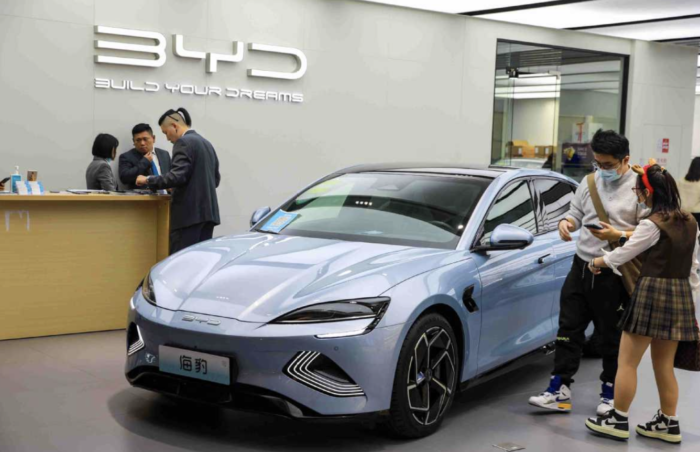Chinese manufacturers and exporters of electric vehicles, including motorbikes, bicycles and even scooters, have made a strong showing at the 2023 Panama E-Mobility Expo, underscoring their interest in promoting electric vehicles here.
Designed to spur the sector’s development, the expo, running from Feb 25 to 26 in Panama’s capital, also drew companies from Germany, Colombia, the United States, Britain, South Korea and Panama.
Electric vehicles are poised to see a “boom” this year in the Central American country, thanks to a new Electric Mobility Law enacted in April last year by Panamanian President Laurentino Cortizo, which took effect this year to encourage government agencies and companies to make the move from fossil fuel-burning vehicles to electric ones, said German Mendez, commercial manager in Panama of Chinese electric carmaker BYD.
“Fortunately, Panama has good energy. It has the electricity infrastructure to be able to support the demand, which of course has to keep growing,” said Mendez, noting Panama already has more than 200 charging stations for electric vehicles.
BYD expects its market share to grow 40 percent to 50 percent in 2023, after expanding its business over the last two years, Mendez said.
Moises Soto, commercial manager in Panama of Chinese carmaker Geely Auto, said that the new law has given the electric vehicle sector a notable boost.
“The Electric Mobility Law has helped us a lot to knock on doors that we thought were closed to us,” said Soto.
Geely is set to launch a seven-passenger light-hybrid vehicle next week, and in June it will present its first 100-percent electric car in Panama, said the manager.
Meanwhile, Diego Castillero, manager in Panama of NIU Technologies which specializes in urban micromobility electric vehicles, highlighted the great business opportunity that exists in the transition to electric vehicles.
China has extensive experience in manufacturing electric vehicles, which is why Chinese vehicles are currently more welcomed, said Welmar Diaz, the representative of Colombian energy company Celsia, a leader in Central America in installing EV charging stations.
The new law, together with a more competitive market, will speed up the adoption of electric vehicles, according to Luis Felipe Gomez, commercial manager of the Green Energy division at battery-maker Casa de las Baterias.
“Now that the market is starting to open up, electric vehicles will be more accessible for ordinary people,” said Gomez, noting that the trend will help the country get better infrastructure and become “greener.”

